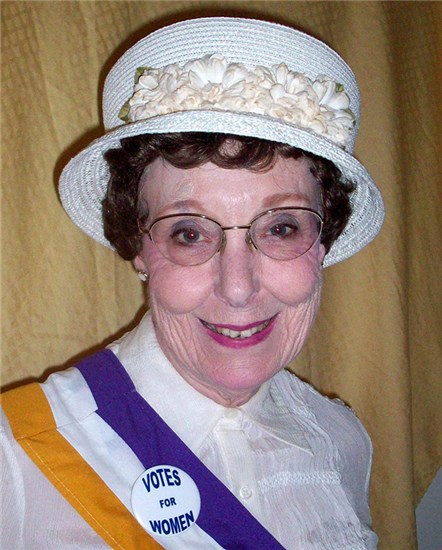
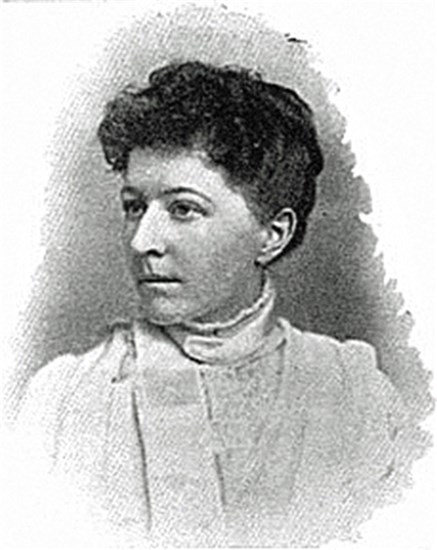
Ellis Meredith
By Kathy Swafford
*****
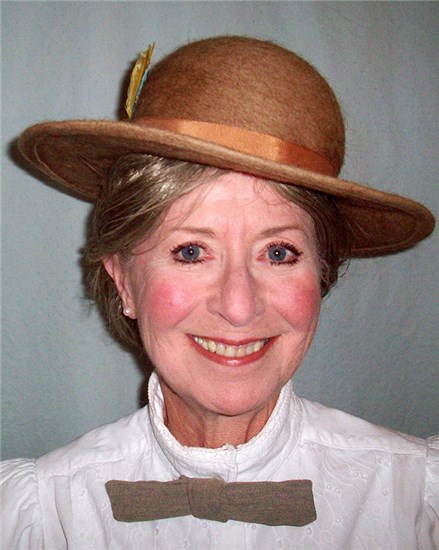
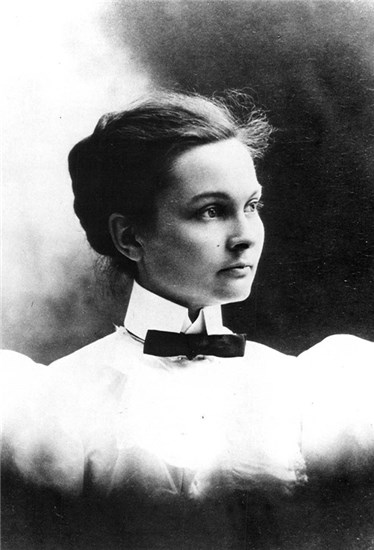
Dr. Susan Anderson
By Joyce Nelson
*****
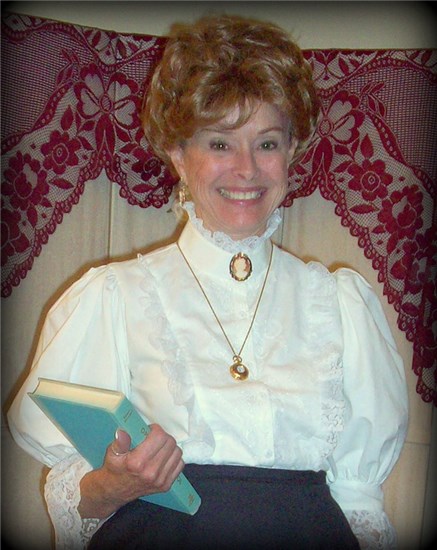
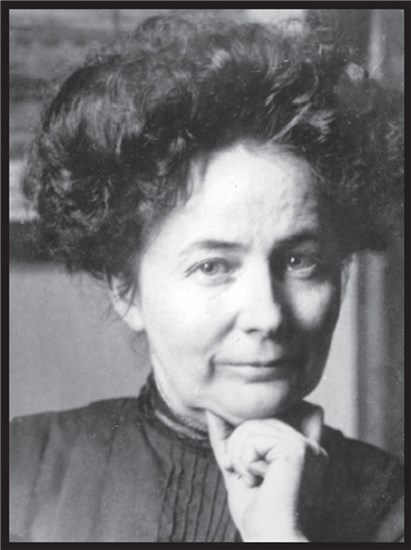
Emily Griffith (1868-1947)
By Linda Gleichmann
Presentations Sponsored by the Richard and Mary Kemme Family Foundation
Emily Griffith
Emily Griffith, pioneer educator, believed everyone deserved an education regardless of age, race, gender, or background. Education was the way out of poverty. She dreamed of a school, supported by the Denver Board of Education, where children and adults could come to learn during the day or night. In 1916, her dream came true. She named it the Opportunity School.
Emily heard how some citizens feared the new immigrants who flooded into the U.S., including Denver. Many thought the immigrants were too different, with strange language and customs, and that they were grabbing jobs and housing that should go to the returning soldiers of the Great War. But Emily did not see the immigrants as a threat. She welcomed them to learn at the Opportunity School. Devoted to her students, she brought soup for the hungry, and coins for their transportation on streetcars. Emily held many state positions, retiring after a monumental career, then died mysteriously.
About Sue Ann Shenk: Announcer Sue Ann Shenk has always been passionate about storytelling. Her experience in Toastmasters earned her Competent Communicator, Competent Leader and Advanced Bronze speaker awards. Her characters include Captain Jack, Lady Miner, and Julia Holmes, first known woman to climb Pikes Peak. Sue performs with the Legendary Ladies at museums, libraries, schools, historical societies and conventions throughout Colorado.
Recommended Reading
Bluemel, Elinor. Opportunity School and Emily Griffith, Its Founder. Green Mountain Press, 1970.
Faulkner, Debra. Touching Tomorrow: The Emily Griffith Story. Filter Press, 2005.
Lohse, Joyce B. Emily Griffith: Opportunity’s Teacher. Filter Press, 2005.
Post, Emily C. Emily Griffith: Opportunity for All. Filter Press, 2013.
Linda Gleichmann
Linda Gleichmann has been performing for The Legendary Ladies, Inc. since 2000. Her other characters include Susan Shelby Magoffin (first white woman on the Santa Fe Trail), Amelia Earhart, and Annie Oakley. Linda recently retired as an elementary teacher in 2016. She enjoys bringing history alive and performs many of her characters for K-12 students.
Quotes
"You can do it."
"We do not believe in failure."
"Help one another."
“For all who wish to learn.”
*****
Ellis Meredith
Born in Montana to Frederick and Emily R. Meredith, a college-educated suffragist, the family later moved to Denver. Colorado's 1876 Constitutional Committee refused suffragists’ request to change language about who can vote from “male” to “person” over age 21. In 1877, Colorado voters soundly defeated the women suffrage amendment, though Susan B. Anthony and Lucy Stone campaigned here. Meredith advocated for woman suffrage in her daily column, “Woman's World,” that she wrote for the Rocky Mountain News from 1889-1903. As silver prices plunged and Colorado silver mines closed and laid off miners in the Panic of 1893, the Colorado legislature put women’s suffrage on the ballot. Meredith spearheaded the campaign and enlisted national suffragist Carrie Chapman Catt to successfully convince male voters on November 7 to approve women’s suffrage by over 6,000 votes, making Colorado the first state women won the vote by ballot. In Washington D.C. for the last exciting years of the federal women’s suffrage campaign, Ellis and others worked to convince a Congress focused on the war and political loyalties and a reluctant President to support the national amendment.
Recommended Reading
Cooney, Robert P. J. Jr. Winning the Vote: The Triumph of the American Woman Suffrage Movement. American Graphic Press, 2005.
Kathy Swafford
Women's history has long been Kathy Swafford's passion, even before retiring from 35 years as a Speech/Language Pathologist. Discovery of two file boxes in the Ellis Meredith Collection #427 at History Colorado revealed actual letters from eastern suffragists and much original material from the Colorado and national suffrage campaigns as experienced by Ellis Meredith, journalist for the Rocky Mountain News and later the Denver Post. Swafford also portrays Dr. Florence Sabin, medical researcher, who represents the state of Colorado in the US Capitol.
Quotes
“Women of Colorado, you have the vote – get it for women of the Nation by voting against Woodrow Wilson and Democratic candidates – their party opposes national woman suffrage”!
National Women's Party billboard, 1916 Presidential election
We have made partners of the women in this war. . . . shall we admit them only to a partnership of suffering and sacrifice and toil, and not to a partnership of privilege and right?”
President Woodrow Wilson, 1918 speech to Congress
“The enfranchisement of women had become a national issue which even the war could not entirely overshadow”
Maud Wood Park, NAWSA Congressional Committee, 1918
“Women wanted the vote, worked for it, and carried on a campaign in which 'sweet reasonableness' and efficiency contrasted with the noisy and ineffective methods of the militants”
Ellis Meredith, on suffrage victory in New York State, Denver Post, January, 1918
“Dear son ….Hurrah and vote for suffrage! …...... Be a good boy......”
Mother of Harry Burn, Tennessee legislator, whose changed vote broke the tie and completed ratification of the federal woman suffrage amendment
*****
Dr. Susan Anderson
Born on January 31 in Nevada Mills, Indiana, Susan Anderson received her medical degree from the University of Michigan Medical School and contracted tuberculosis in 1897. She established her first medical practice in Cripple Creek, Colorado that year, but struggled to gain the trust of patients. After further unsuccessful attempts to set up a medical practice in Denver and Greeley, due to prejudice against women doctors and the abundance of male doctors, she worked as nurse in Greeley until 1907, when she moved to Fraser, Colorado, gravely ill from tuberculosis. To her surprise, she survived. People soon discovered she was a physician—even though her first patient was a horse. She brought successful medicine and healing to Fraser and Middle Park in an era when women doctors were rare and not readily accepted. Also known also as Doc Susie, she made house calls all over Middle Park, doctoring the sick. Dedicated to public health, she strove to prevent epidemics of typhoid, smallpox, and diphtheria. She dealt with the mysterious, deadly Spanish Influenza Pandemic of 1918 that spread like wildfire during the last months of the Great War, as well as the medical problems caused by alcohol abuse (she supported Prohibition). Dr. Susan Anderson was known as the best diagnostician on the Western Slope.
Recommended Reading
Cornell, Virginia. Doc Susie: The True Story of a Country Physician in the Colorado Rockies. Carpinteria, CA: Manifest Publications, 1991.
Joyce Nelson
Joyce Nelson has performed in libraries, museums, and schools around Colorado as a 20-year member of The Legendary Ladies, Inc. Her characters also include the tempestuous entertainer, Lola Montez; notable author, Anne Ellis; pivotal police officer, Alice Stebbins Wells; and vegetarian utopian colonist, Miriam Davis Colt. Retired from law enforcement, Joyce is an avid hiker, Jefferson County Open Space volunteer, and book lover.
General Information
Dr. Susan Anderson dealt with almost every known malady, including the mysterious and deadly Spanish Influenza Pandemic of 1918 that spread like wildfire during the last months of the Great War.
Dr. Anderson was a strong proponent of Prohibition that began in 1917 when Congress elected to save grains for the war effort, thus closing breweries and distilleries which used grains in alcohol production.
Quotes
“Doctor Susan Anderson was a rare woman, indeed: a female frontier doctor who searched for health, success and romance in the wild western lands of the Colorado Rockies.”
Diane Donovan, The Bookwatch
“Fiddlesticks”
Dr. Susan Anderson’s single word response when she turned down Ethel Barrymore’s request to make her life story into a movie.
“Dr. Anderson . . . as a professional . . . inspired the young girls of Fraser to pursue goals loftier than the drudgery their mothers endured.” --Colorado Women’s Hall of Fame
“In those days, Doc Susie used medications interchangeably between humans and animals. That was before pharmaceutical houses discovered a fundamental economic principle. Label a medication for human consumption, and a higher price could be charged.”
Virginia Cornell, Doc Susie: The True Story of a Country Physician in the Colorado Rockies
“I’ll tell you what, Professor. They died!”
Dr. Susan Anderson’s response to the question, “Doc Susie, what did you give your patients before you had antibiotics?”